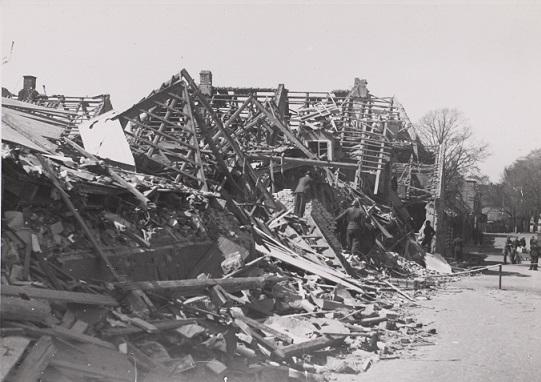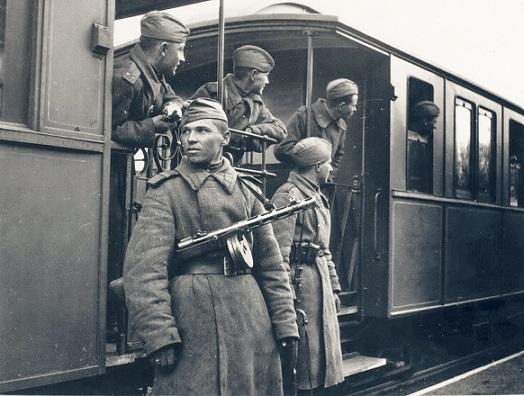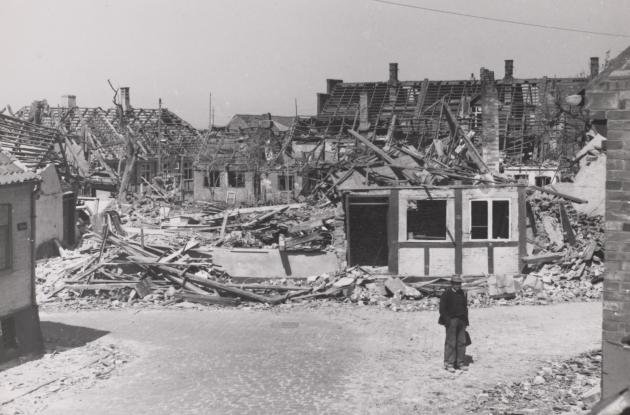The final liberation of Bornholm
While the rest of the country celebrated the liberation on 4 May 1945, a few days later bombs fell on Bornholm. Almost a year later, the island could finally celebrate its own liberation.
When the message of liberation was heard on the evening of 4 May 1945, all of Denmark rejoiced. But the relief lasted only a short while on Bornholm. While the rest of Denmark celebrated freedom in the streets, a two-day-long nightmare began to unfold on Bornholm. On the morning of 7 May, a German anti-aircraft battery fired at Soviet airmen. Later that morning, Soviet warplanes with red stars appeared on the horizon off Nexø. Soon after, the first bangs were heard. Not long after, the warplanes reached Rønne. The bombs fell like rain. And it did not end with the first wave. The attackers came back in the evening and bombed again. Along with the bombs, leaflets were sprinkled across the island. They urged the German commander, Gerhard Von Kamptz, to surrender to the Soviets. If he did not, then the Soviet Union would continue the bombing.

Photo: Willy Hansen
Kamptz refused to surrender. With its location in the Baltic Sea, Bornholm was strategically important for the Germans, who transported German refugees and soldiers across the Baltic Sea and to the west. He had been given strict orders to defend the island against Soviet troops and surrender only to British or American troops. Therefore, the Soviet Union continued the relentless bombing again the next day, leaving both Nexø and Rønne in ruins. 10 Bornholmers and many Germans lost their lives during the bombings.

Photo: Axel Munch
A new occupying power
On the night between 8 and 9 May, the Germans finally capitulated in Europe. This meant that the Soviet troops peacefully arrived on Bornholm the following morning. The island passed from one occupying power to another. Now the people of Bornholm had to replace the German words with Russian ones. They had to roll up their sleeves and start the huge reconstruction work of Nexø and Rønne, which lay in ruins.
The Soviet soldiers came straight from the hell of the Eastern Front and alcohol problems were widespread among them. Several of them died of alcohol poisoning during Bornholm's occupation. The Russians stayed in military camps outside the cities, but 20 rapes, several assaults and robberies were committed by soldiers during the occupation. You could hardly say that peace had come to Bornholm yet.
The final liberation
It was not until the beginning of 1946 that the negotiations between the Danish government and the Soviet Union began. The Russians proved willing to negotiate, however they demanded that the Danish military forces on Bornholm must not exceed a certain size and that foreign powers must not have influence on the island's administration.
On 5 April 1946 – almost a full year after the liberation of the rest of Denmark – the agreement was concluded. The Soviet fleet left Bornholm under a cannon salute, and the people of Bornholm could celebrate the final liberation.
